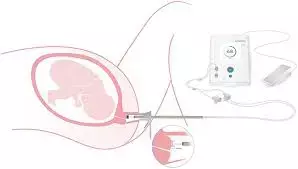- Home
- Medical news & Guidelines
- Anesthesiology
- Cardiology and CTVS
- Critical Care
- Dentistry
- Dermatology
- Diabetes and Endocrinology
- ENT
- Gastroenterology
- Medicine
- Nephrology
- Neurology
- Obstretics-Gynaecology
- Oncology
- Ophthalmology
- Orthopaedics
- Pediatrics-Neonatology
- Psychiatry
- Pulmonology
- Radiology
- Surgery
- Urology
- Laboratory Medicine
- Diet
- Nursing
- Paramedical
- Physiotherapy
- Health news
- Fact Check
- Bone Health Fact Check
- Brain Health Fact Check
- Cancer Related Fact Check
- Child Care Fact Check
- Dental and oral health fact check
- Diabetes and metabolic health fact check
- Diet and Nutrition Fact Check
- Eye and ENT Care Fact Check
- Fitness fact check
- Gut health fact check
- Heart health fact check
- Kidney health fact check
- Medical education fact check
- Men's health fact check
- Respiratory fact check
- Skin and hair care fact check
- Vaccine and Immunization fact check
- Women's health fact check
- AYUSH
- State News
- Andaman and Nicobar Islands
- Andhra Pradesh
- Arunachal Pradesh
- Assam
- Bihar
- Chandigarh
- Chattisgarh
- Dadra and Nagar Haveli
- Daman and Diu
- Delhi
- Goa
- Gujarat
- Haryana
- Himachal Pradesh
- Jammu & Kashmir
- Jharkhand
- Karnataka
- Kerala
- Ladakh
- Lakshadweep
- Madhya Pradesh
- Maharashtra
- Manipur
- Meghalaya
- Mizoram
- Nagaland
- Odisha
- Puducherry
- Punjab
- Rajasthan
- Sikkim
- Tamil Nadu
- Telangana
- Tripura
- Uttar Pradesh
- Uttrakhand
- West Bengal
- Medical Education
- Industry
Mid-Trimester Blood Test and Treatment Bundle may Reduce Preterm Birth Risks: Study

According to a new research mid-trimester blood test successfully identified average-risk women at risk for preterm birth. Researchers found that a treatment bundle, including progesterone and low-dose aspirin, significantly reduced neonatal morbidity and hospital stay compared to usual care. Presented at The Pregnancy Meeting, the study showed that when paired with a three-step treatment bundle, the predictive blood test markedly improved neonatal outcomes.
Obstetric advances have had limited impact on preterm birth (PTB) rates and neonatal outcomes. We assessed outcomes in a cohort of average risk singleton pregnancies using biomarker-based PTB risk stratification, followed by interventions for those identified at higher risk. This randomized controlled trial enrolled 5,018 singleton pregnancies at 19 U.S. centers from 2020-2023. Individuals with prior PTB, short cervix, severe maternal conditions, or known genetic/fetal anomalies were excluded. We measured the ratio of maternal circulating insulin-like growth factor-binding protein 4 to sex hormone-binding globulin between 18w0d and 20w6d, with participants randomized 1:1. The control arm, blinded to test results, received usual care, while the prevention arm received test results. Prevention arm participants identified as high-risk were offered a regimen of daily vaginal progesterone, low-dose aspirin, and weekly nursing calls. Lower-risk participants in the prevention arm received usual care. Follow-up continued through delivery and neonatal discharge. The prespecified modified intent-to-treat (mITT) analysis included the control group, prevention arm low-risk participants, and high-risk participants who consented to intervention by 24 weeks, while excluding those hospitalized with COVID-19. Primary outcomes included neonatal length of stay (NNLOS) and a composite morbidity index (NMI). A planned intent-to-treat (ITT) analysis assessed multiple neonatal outcomes. Results: Baseline characteristics did not differ between arms. mITT analysis of co-primary outcomes (Table 1) showed significantly decreased NMI and NNLOS in the prevention arm. The ITT analysis displayed significant reductions in NMI (20%), NNLOS (8%), neonatal intensive care unit (NICU) length of stay (6%), and NICU admission (20%). In an average risk singleton population, a mid-trimester blood test identified pregnancies at higher PTB risk, and implementing the treatment bundle significantly reduced neonatal morbidity and hospital stay compared to usual care.
Reference:
Iriye, B. K., O'Brien, J., Ennen, C. S., Barrilleaux, P., Berkin, J., Palatnik, A., Son, M., Gyamfi-Bannerman, C., McDonald, M., Markenson, G., Sciscione, A. C., Biggio, J. R., Wolf, S., Sullivan, S., Walker, M., Shahbaba, B., & Pound, S. P. (2025, January 31). Neonatal impact of prematurity risk biomarker screening with targeted interventions: A multicenter randomized controlled trial [Conference presentation]. Aurora Ballroom, Lobby Level, Hera Women's Health, Las Vegas, NV, United States.
Keywords:
Mid-Trimester, Blood Test, Treatment, Bundle, Reduce, Preterm, Birth Risks, Iriye, B. K., O'Brien, J., Ennen, C. S., Barrilleaux, P., Berkin, J., Palatnik, A., Son, M., Gyamfi-Bannerman, C., McDonald, M., Markenson, G., Sciscione, A. C., Biggio, J. R., Wolf, S., Sullivan, S., Walker, M., Shahbaba, B., & Pound, S. P.
Dr. Shravani Dali has completed her BDS from Pravara institute of medical sciences, loni. Following which she extensively worked in the healthcare sector for 2+ years. She has been actively involved in writing blogs in field of health and wellness. Currently she is pursuing her Masters of public health-health administration from Tata institute of social sciences. She can be contacted at editorial@medicaldialogues.in.


